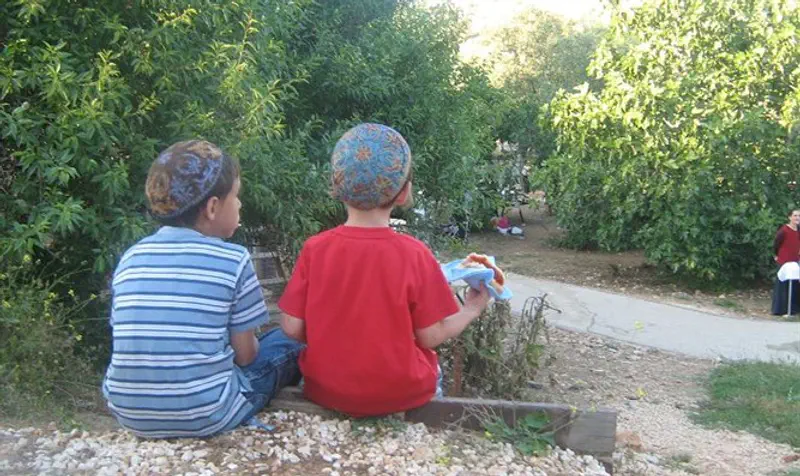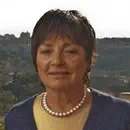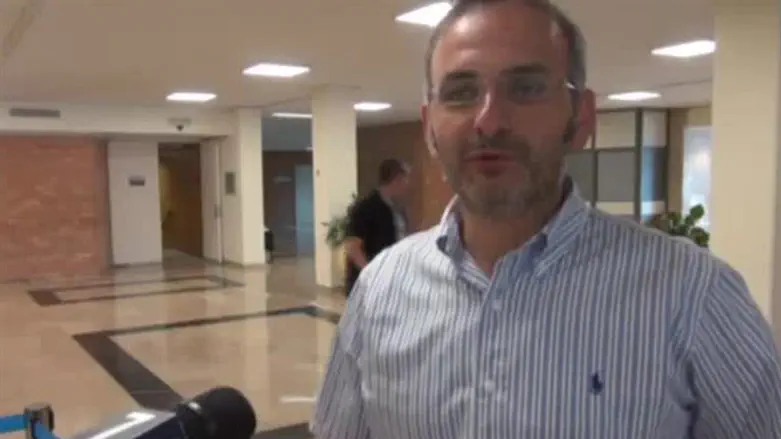
Shai Alon is the head of the Beit El Local Council, a challenging job if there ever was one. Born in 1972, the eldest of six children born to Chaim and Rochel Alon, he grew up in Jerusalem, completed his army service in IDF Unit 50 of the Nachal Brigade and continued to serve in a combat reserve unit until being elected to run the township of Beit El. Meeting him, one is impressed by his warmth, but he also comes across as an energetic leader and is considered the "man of integrity who gets things done" by his constituents. He and his wife Oshrat have 8 children.
Arutz Sheva: There are no set prerequisites for mayoral candidates, but what made you feel you could do the job? What is your professional background?
Alon: To do the job, one needs a feeling of mission and unlimited dedication, not degrees, but since you asked, I will tell you that I received my BA from the Hebrew University Accounting Department in 2000, became a licensed CPA and continued on for an MA at Hebrew University in Public Policy Administration.
After that, I was CPA for the Dead Sea Kibbutzim for 3 years, and at the end of 2004 established a private accounting office in Jerusalem, eventually joining up with a good friend and partner to form Assoulin- Alon and Co. I worked there until November 2013, when I ran for office and was elected to head the Beit El Local Council.
A7: What organizations are you active in as a result of your position?
Alon: As a council head, I am automatically a member of the Judea and Samaria Regional Council, of the countrywide Israeli Local Council Heads Forum and of the Center for Local Government, where I serve on a number of committees and get to express the views of Judea and Samaria residents.
A7: Give us a brief history of Beit El
The hills surrounding Beit El were liberated during the 1967 Six Day War and later, when then Prime Minister called on Israelis to move to Judea and Samaria 40 years ago, 16 families moved to tiny caravans adjoining IDF Army Camp No. 4 adjacent to the present site of Beit El and established a new "settlement."
They lived there without running water for months, laying gravel paths through the mud, showering and doing laundry in a barracks the army set aside for them, managing to live with constant electricity blackouts and no home phones (no smart phones then!), eating army food in the army mess hall.
They had to drive through the Arab city of Ramallah to reach Jerusalem half an hour away and some did their shopping in Ramallah's twin city El Bireh – but that was before Sadat's peace gesture brought the anti-peace terrorists out of the closet and the ensuing violence forced the government to build a bypass road.
After about a year, permission to build outside the army camp was granted and two adjoining communities were established, Beit El Aleph and yeshiva town Beit El Bet. There already was a fledgling yeshiva, which grew by leaps and bounds, thanks to the efforts of Rabbi Melamed, Yaakov Katz ('Ketsale', later a National Union MK), Yoel Tzur and others, all following the instructions of Rabbi Tzvi Yehuda Kook zts"l of Merkaz Harav to establish a yeshiva in the Shomron (Samaria)..
A7: And today?
Alon: Today, Beit El is a thriving town in West Binyajmin which has had its own local council for the past 20 years. Well known Israeli figures lived here - the first council was headed by today's Agriculture Minister Uri Ariel, head of the National Union – and many still do. Our own Rabbi Baruch Zalman Melamed shlita is a nationally-known rabbinic figure in the Religious Zionist sector, his son Rabbi Eliezer authored the popular Peninei Halakha series and today is rabbi of Har Bracha.
Yes, it all started with the 16 families who were the first to make their homes in Beit El - and today there are close to 6500 residents in the town.
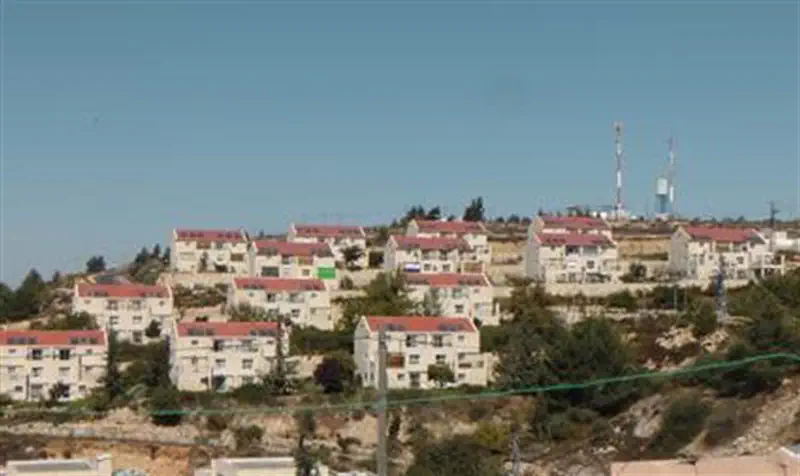
Still, for an entire decade, due to pressure from former US President Obama, no houses were allowed to be built in the community despite increasing demand. That, thank G-d, seems to be changing. We will soon begin the construction of 300 housing units and are already working on attaining building permits for several hundred additional apartments, so that in the next few years, the entire town will change its appearance and grow substantially.
A7: Who lives in Beit El?
Alon: Beit El's residents are varied, from the veteran pioneers who established the community to the many new families who moved here over the years. Some are Israeli born, many others are new immigrants to Israel. There is a Bnai Menashe group - the newly-found Jews who immigrated from the provinces of India bordering Tibet - there are Jews from Peru, France, the US, Canada, South America, Australia and other countries.
The new immigrants adjust rapidly and feel right at home because the council has a special employee whose responsibility it is to see that their problems are met and they are absorbed into the community. We proffer help in whatever areas need assistance, socially and otherwise.
We would love to have even more new immigrants in the town. Adults, young people and teens all find a place in Beit El, where the council and its volunteers love each sector and do their best to attend to its needs.
Beit El is home to a large number of professionals, but can absorb more and would be especially pleased to absorb olim whose professions lie in the medical and health fields!
The community is religious Zionist in character, but we are happy to accept anyone who wants to live in that atmosphere respectfully, without checking his personal level of observance.
Arutz Sheva: Where do the young people and children go to school?
Alon answers, with visible pride: Beit El is blessed with educational institutions whose excellent reputation is the pride of the entire community. Beginning with day care facilities and kindergartens, elementary schools for boy and girls, and even a cheder type school for those who wish that kind of Torah education (called a Talmud Torah in Israel, ed) , two yeshiva high schools and two ulpanas (Torah-oriented high schools for girls), a post high school yeshiva and a pre-Army mechina program.
Beit El's Yeshiva Gevoha (post high school yeshiva) headed by Rabbi Melamed is one of the highest level yeshivas in Israel.
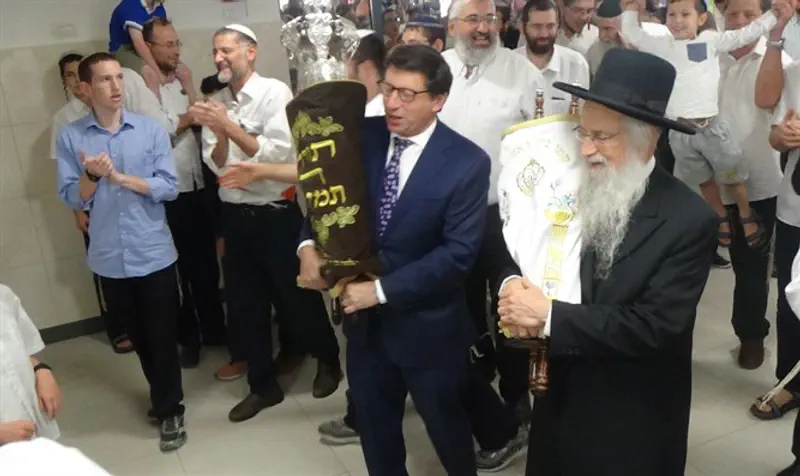
Any child born in Beit El, benefits from our school system, from day care to post army age. In addition, our educational institutions are applied to by students from all over the country. The schools are considered leaders in religious Zionist education.
A7: What other facilities does the town have to offer residents?
Alon: The town has several commercial areas for shopping, a gas station at its entrance and an active well-equipped community center, but the most talked about place in Beit El is the site known as "Jacob's dream", identified by renowned archaeologist Professor Zev Vilnai almost 40 years ago, as the site on which Jacob's biblical dream took place.
This is where the Land of Israel was promised to the People of Israel, and this Is where the covenant with the G-d of Abraham, Isaac and Jacob that justifies our historical rights to this entire country and to Beit El in particular was made. The site draws visitors from all over the world and has been written about by media networks from the entire world – and, of course, in Israel.
A7: Getting back to you, how did you become local council head?
Alon: About five years ago, a group of residents turned to me asking me to run in the local elections for head of the council. I had kept away from politics until then, and was doing well in my accounting partnership – certainly with more peace of mind! - but decided to agree to their request because I love Beit El and thought I could accomplish things for the community. This ended up with my being chosen to head the Beit El Council at the somewhat early age of 40.
A7: How's it going?
This has been a stormy period for all of us in Beit El, a period during which we had to undergo the terrible historic injustice of the destruction of the Dreinoff Houses by order of the Supreme Court. It's tough to see houses built for the young couples in the town destroyed, especially since there was another traumatic destruction – that of the Ulpana houses six years earlier, and we had offered financial recompensation which the court would not allow. After all, no Arab would want to build in houses on plots located inside the community!
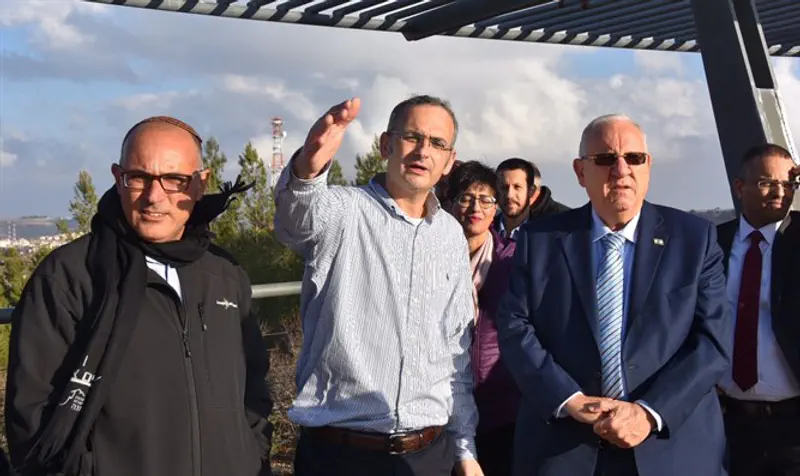
As a result of the Dreinoff affair, we began a stubborn struggle against the government and its head, Prime Minister Binyamin Netanyahu, literally forcing them to authorize the marketing of apartments that they had promised in exchange and were hesitating to begin to build, coining a new phrase for politicians: "Promises must be kept."
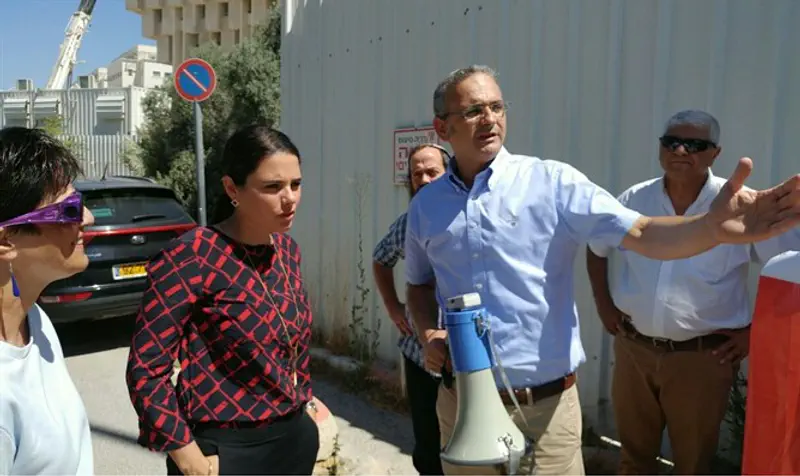
A7: And the future? What do you hope to accomplish?
Alon: I hope to be elected for another term, because one's first term is like planting seeds and watching the first shoots emerge from the soil, while with G-d's help, a second will see us reaping the fruits of the seeds planted in the first one.
I hope to build all the homes that were authorized and planned, as well as the authorized public buildings that will allow us to expand Beit El and realize the five year plans that have been long ready for implementation.
I hope that as the population of Beit El increases, we can work on having the roads from the town to Israel's large cities improved so that all parts of the country are easily accessible, especially by public transportation to and from the town.
That will raise the standard of living and add even more to the town's attractiveness, because most residents do not work within the town. We have been pressuring the Transportation Ministry for the past few years, and there were resulting improvements, but they are a drop in the ocean at this point. We still need the road system widened and planned to accommodate the number of residents of this beautiful region, the biblical heartland of Israel, of Judea and Samaria.
A7: What are your dreams?
Alon: I hope to see Beit El become a major Israeli city, see it become the capital of Binyamin. My goal Is to double the number of residents over the next few years while maintaining the present population's quality of life or even raising it.
There are obstacles on the road to realizing my dreams, the main one a lack of land for zoning. We hope to convince the government to increase the land available for construction. It's all hard and uphill work, but I love it because every small and large accomplishment is so meaningful for the Land of Israel and the Jewish people.
A7: What is hardest about your work?
Alon: What I find most frustrating are the international obstacles. During Obama's terms there was a total freeze on expanding our communities, and now that Trump is president, the government is still limiting our growth and has yet to take full advantage of the change for the good.. It is sad that we cannot build the way the rest of the country can.
A7: Tell us plans for something new.
Alon: A new and special project that is planned for Beit El is a Visitors Center for the thousands of tourists who come to see the site of "Jacob's Dream". Building the center will allow even more tourists to come, both Israelis and those from overseas - and here, all of them can learn Beit El's important role in Jewish history. We have already succeeded in receiving a budget grant for this project from government ministries and we hope to begin construction soon.
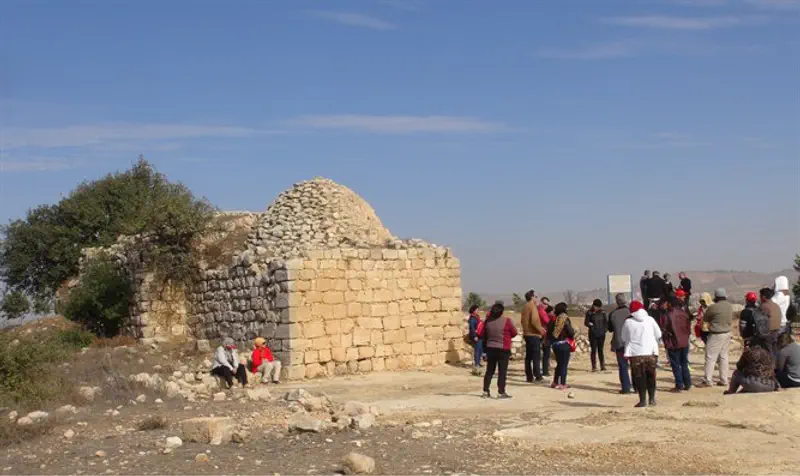
A7: How do you sum up your feelings about your position?
All in all I really enjoy serving my constituents, and public service affords me much satisfaction. I see what Beit El has achieved, what Judea and Samaria have become, and base my vision for the coming years on going forward from there.
My take on it is that I am given raw materials and my position enables me to accomplish things for the benefit of the public, including my family but not only for my family.
Every accomplishment energizes me immensely, fills me with joy. And when one sees results, one has the strength to go on working and overcome obstacles. When people say thank you, are happy that things are being done, and are proud of the success of Beit El, all the obstacles on the way become surmountable, despite the long hours.
A7: And the critics - if there are any?
Alon: Criticism? That is an inevitable part of a public servant's life – and it is also a learning experience, a way to see what needs more attention.
I want to wish a happy, kosher and tranquil Pesach holiday to the people of Beit El, of Judea and Samaria, of all of Israel, near and far.
Come out to see the breathtaking sights and interesting activities available in Judea and Samaria during this most beautiful Spring season and Festival of Freedom! We are waiting for you.
